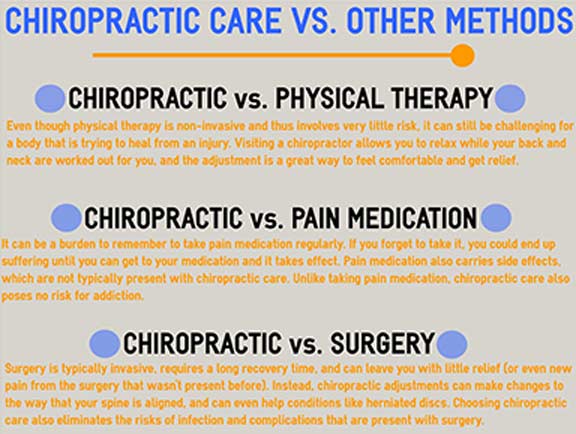If you're experiencing pain in the back, your body might be trying to tell you something more than simply discomfort. The method your back feels can give valuable hints about your overall health. Comprehending the certain sort of pain you're feeling and any type of coming with signs is crucial to unraveling the mystery behind your discomfort. Allow's discover the usual conditions and signs and symptoms associated with various kinds of neck and back pain to shed light on what your body might be signaling.
Sorts Of Pain In The Back
When it pertains to back pain, there are numerous kinds that you may experience. One usual kind is muscle discomfort, frequently triggered by overuse, pressure, or injury to the muscle mass and ligaments sustaining the spinal column. This type of discomfort can vary from moderate pain to serious and incapacitating discomfort.
Another type is nerve pain, which can arise from conditions like herniated discs or sciatica. Nerve discomfort typically offers as a sharp, shooting feeling that emits down the leg.
Joint pain in the back can originate from concerns like joint inflammation or sacroiliac joint disorder. This type of discomfort is commonly felt in the lower back and can be intensified by certain activities.
Furthermore, pain in the back can be related to structural troubles such as spinal stenosis or vertebral cracks. Recognizing the kind of pain in the back you're experiencing is crucial in establishing the appropriate therapy and management strategies.
Common Effects to Watch For
Relocating past the various kinds of back pain, it is very important to acknowledge the typical signs and symptoms that can signal underlying problems.
Relentless neck and back pain that aggravates with movement or at night can show a much more significant trouble. Numbness or prickling in the legs or feet, particularly when accompanied by weak point, might point to a nerve-related issue. If you experience sudden weight loss together with neck and back pain, it could be an indicator of a much more systemic problem.
Pay attention to any type of adjustments in bladder or digestive tract function, as this could be connected to spinal cord compression. Fever, chills, or evening sweats in conjunction with pain in the back may signal an infection. Keep an eye out for discomfort that emits down one or both legs, possibly a measure of sciatic nerve pain.
Health And Wellness Issues Linked to Neck And Back Pain
If you experience back pain, it's important to recognize the possible wellness problems linked to this pain. Pain in the back can be a symptom of various underlying problems, including muscular tissue pressures, herniated discs, osteo arthritis, back constriction, and also conditions like kidney stones or infections.
Muscle mass stress prevail and usually arise from raising heavy things or sudden activities.
Herniated discs happen when the soft cells in between vertebrae protrudes, creating nerve irritation.
Osteoarthritis, a degenerative joint illness, can result in back pain as cartilage material wears down.
Spinal constriction, the constricting of the back canal, can put pressure on nerves.
Kidney stones might trigger intense back pain if they relocate into the urinary system system.
the joint chiropractor like spinal osteomyelitis can additionally manifest as pain in the back. Comprehending these potential health conditions can help you look for appropriate healthcare and monitoring for your pain in the back.
Final thought
So, following time your back injures, take notice of the kind of pain and coming with signs. It could be a signal from your body regarding underlying wellness conditions like muscle pressure, nerve issues, joint troubles, or perhaps architectural concerns. By identifying these signs, you can take proactive steps to address the source of your neck and back pain and boost your total wellness and well-being.
